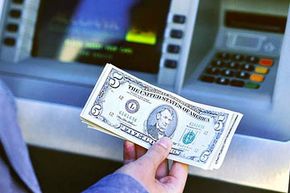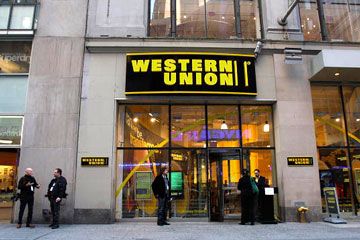Since their introduction in the late 1960s, automated teller machines (ATMs) have become ubiquitous. Go into a grocery store and chances are you'll find an ATM. Go to the airport to catch a plane and you'll pass an ATM (or a dozen) on the way to the gate. ATMs are so common that few people go to the bank just to get cash. Instead, they brandish their bankcards, punch a few buttons and watch as crisp green bills are dispensed into their hands. ATMs are convenient because you don't have to find a branch of your bank and you often don't have to wait in line. Almost anywhere you go, there's an ATM offering easy access to your money.
But there are hidden costs to using an ATM, some of which you probably know about, some of which you may not be aware. Following the introduction of interbank networks such as Cirrus and STAR, which gave people the ability to withdraw money from ATMs owned by banks at which they held no account, many banks began charging fees for withdrawals. These fees, or surcharges, have gradually risen over the years. According to Bankrate.com, the average ATM fee as of 2009 was $2.22 per transaction, but that only tells half the story [source: Bruce]. When your bank finds out that you've made a withdrawal from an ATM it doesn't own, it can charge you a "foreign" ATM surcharge. This fee reportedly averaged $1.32 in 2009 [source: Bruce]. And while the ATM must, by law, inform you of the withdrawal fee, you'll only learn about the foreign ATM fee when you look at your bank statement.
Advertisement
These fees can add up. Let's say you make one cash transaction a week at an ATM not owned by your bank, paying a $2 ATM fee to the bank that owns the ATM and a $1 foreign ATM fee to your own bank. You'll be paying more than $150 per year in fees. That's a lot of money.
And yet, with a little foresight and planning, you can avoid paying ATM fees altogether. How? Read on to find out.
Advertisement


